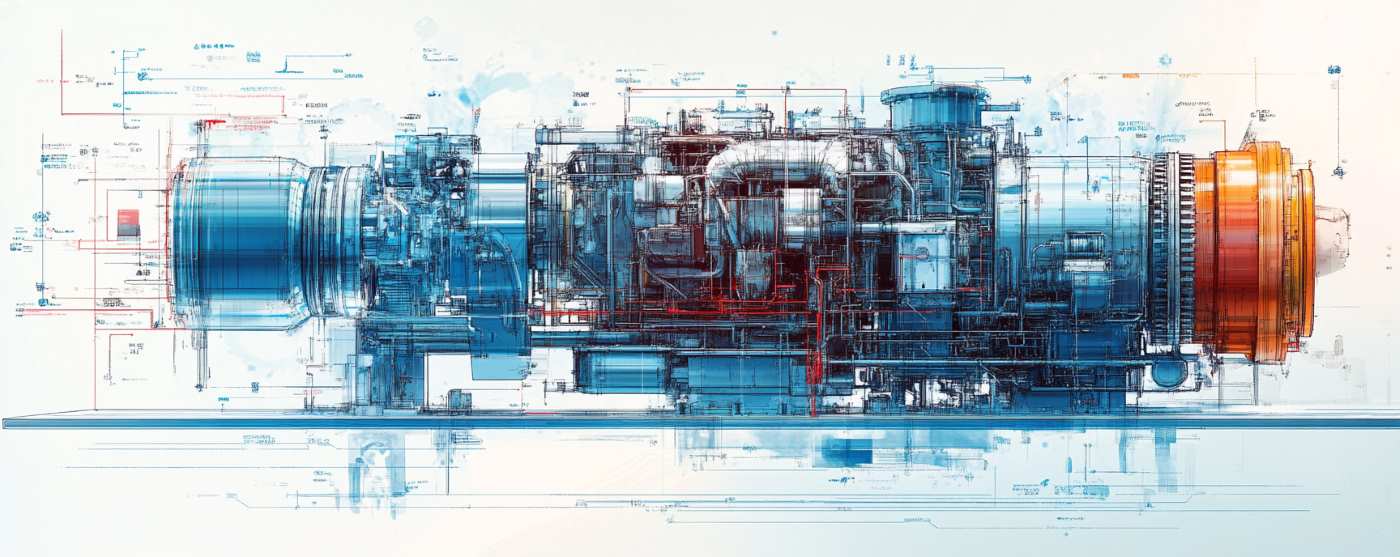
What is Mechanical Engineering?
Mechanical engineering is the broadest of the engineering disciplines. This field focuses on two major topics: thermal systems and mechanical systems.
As a result, the mechanical engineering curriculum overlaps many other engineering fields, including aerospace, biomedical, chemical, civil, electrical, industrial, materials and metallurgical and petroleum.
High School Preparation
Any prospective engineering student should have a strong high school background in elementary, intermediate and advanced algebra, trigonometry, geometry, pre-calculus, chemistry and physics.
Additionally, the pre-engineering student should have solid reading comprehension skills and the ability to write logically, clearly, concisely and with correct grammar.
University Coursework
The core curriculum of mechanical engineering at any engineering school accredited by the Accreditation Board of Engineering and Technology (ABET) consists of:
- Statics: The study of the effect of forces on a stationary body.
- Dynamics: The study of the effect of forces on a moving body.
- Materials Science: The study of the structure of materials on a molecular and atomic level.
- Thermodynamics: The study of heat and its relationship to pressure, density, temperature and work.
- Fluid Dynamics: The study of liquids and gases in motion.
- Heat Transfer: The study of the heat transfer process from one body to another.
- Structural Analysis or Mechanical Design: The study of the effects of loads on a body and its components.
- Kinematics and Dynamics of Machinery: The study of a moving body with and without reference to the cause of its motion.
- Electrical Circuits: The study of amperage or current flow in a closed loop consisting of voltage sources and resistors.
- Instrumentation and Controls: The study of instruments for measurement and controls in modern systems.
- Mechanical Vibrations: The study of machine vibrations.
- Computer Science: The study of the latest computer language and computer-aided design (CAD).
Before these courses can be taken, however, the aspiring mechanical engineer must develop a thorough understanding of the fundamental subjects of calculus, differential equations, partial differential equations, calculus-based physics and chemistry.
All mechanical engineering programs require multiple semesters or quarters of these subjects. These subjects lay the foundation to the understanding of the core curriculum. The mechanical engineering student cannot master the core mechanical engineering concepts without mastering the fundamentals.
Types of Degrees
It usually takes four to five years to obtain a bachelor of science in mechanical engineering. Students should seriously think about co-operative education where they take one semester or quarter of university courses and work in an industry-related environment the next semester or quarter.
Co-oping is a paid internship, and oftentimes the job experience can lead to employment at graduation. The ambitious student can take another two years of coursework to obtain a Master’s Degree in mechanical engineering. The student who desires to go into research and/or teach engineering can spend another year or two obtaining a PhD.
Online Study
There are some universities that offer online mechanical engineering study programs. However, mechanical engineering is not well suited to online study because this discipline requires hands-on experience with moving parts and instruments.
Additionally, all accredited engineering schools require the design, construction and presentation of a senior design project that is supervised by an engineering professor. This is an educational benefit that an online study program cannot truly offer.
Professional Engineer (PE) License
The PE license is a respected seal of competence and assurance of quality. This prestigious license shows that the engineer is at the top of the profession, both in competence and ethics. For consulting engineers and private practitioners, it is essential if not a legal requirement to be licensed. Only professional engineers can sign and seal engineering drawings or serve as qualified expert witnesses.
Moreover, professional engineers can earn higher incomes throughout their career, and the license expands the opportunities beyond the company organization, such as independent consulting.
To obtain a PE license, the applicant should check his or her state’s requirements. Usually the requirements are:
- Bachelor of Science degree from an accredited university
- Four years of work experience that is acceptable to the state licensure board
- Five character references, three of which are from professional engineers
- Passing scores on the Engineer-in-Training (EIT) or Fundamentals of Engineering exam and the Principal and Practice of Engineering exam (PE exam).
The EIT exam can be taken while still in engineering school. A great source of information about becoming a PE is the National Society of Professional Engineers.
Careers
A mechanical engineer can work in industries such as aerospace, automobile, combustion engines and fuels, fluid machinery, manufacturing and construction and building sciences. A postgraduate of mechanical engineering has a host of career opportunities in other fields, such as law, business and medicine. A lawyer with a mechanical engineering degree can have a very lucrative career in patent or products liability law.
Employment opportunities in management are more available for the mechanical engineer who has a master’s degree in engineering or business administration. Additionally, mechanical engineers with a postgraduate degree in biomedical engineering might work for private medical companies or hospitals developing hip replacements, prosthetics, robotic surgical equipment or diagnostic and treatment equipment.
Salary
According to data released by the U.S. Bureau of Labor Statistics (BLS) in May, 2011, mechanical engineers earned an average annual income of $83,550.
The industries with the highest concentration of mechanical engineers were:
- Engine, turbine and power transmission equipment manufacturing
- Industrial machinery manufacturing
- Motor vehicle manufacturing
- Architectural, engineering and related services
- Railroad rolling stock manufacturing
- The industries with the highest levels of employment were:
- Architectural, engineering and related services
- Federal executive branch (Occupation Employment Statistics (OES) designation)
- Aerospace product and parts manufacturing
- Navigational, measuring, electromedical and control instruments manufacturing
The industries with the highest levels of employment were:
- Architectural, engineering and related services
- Federal executive branch (Occupation Employment Statistics (OES) designation)
- Aerospace product and parts manufacturing
- Navigational, measuring, electromedical and control instruments manufacturing
- Scientific research and development services
The top paying industries for mechanical engineers were:
- Lessors of real estate
- Oil and gas extraction
- Bakeries and tortilla manufacturing
- Other professional, scientific and technical services
- Spectator sports
The annual salaries for these industries range between $102,000 and $117,000 according to the BLS.
Trade Associations
The main trade association for mechanical engineers is the American Society of Mechanical Engineers (ASME). The prospective mechanical engineering major can find a wealth of information about ABET-accredited universities, certifications and licensures on the ASME website. Other helpful associations in terms of valuable information and networking are the National Society of Black Engineers, the Society of Women Engineers and the National Society of Professional Engineers.



